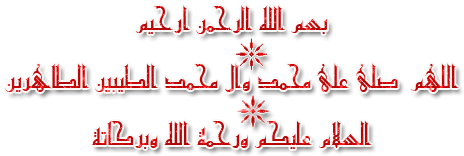WHAT IS HIJAMAH (WET CUPPING) PART 1
Note that even though the various forms and methods of Cupping are beneficial, only wet cupping (hijama) is a remedy from the sunnah.
Below are some narrations from the sunnah of the Prophet (sallallahu alaihi wasallam) that relate to Hijamah therapy:
Narrated ibn Abbas that the Messenger of Allah (sallallahu alaihi wasallam) said: I did not pass by an assembly of Angels on the night that I was taken on the night journey (lailatul israa), except that all of them said to me: Oh Muhammad, upon you is Cupping (You should have cupping performed).
(Sunan ibn
Majah 3477)
Narrated Anas bin Malik (radiyallahu anhu) that the Messenger of Allah (sallallahu alaihi wasallam) said: I did not pass by an assembly of Angels on the night that I was taken on the night journey (lailatul israa), except that they said: Oh Muhammad, order your nation with Cupping (to use cupping as a treatment). (Sunan ibn Majah 3479)
Narrated Jabir (radiyallahu anhu) that Umm Salamah (wife of the Prophet sallallahu alaihi wasallam) sought permission from the Messenger of Allah (sallallahu alaihi wasallam) to have Cupping performed on her. So the Prophet (sallallahu alaihi wasallam) ordered Abu Taibah to cup her. He said: I assumed that he was her brother from breast feeding or he was a boy under the age of puberty. (Sunan ibn Majah 3480)
Narrated Jabir (radiyallahu anhu) when he returned to Muqanna’ he said: I will not leave until to treat yourself with Cupping. For indeed I heard the Messenger of Allah (sallallahu alaihi wasallam) saying: Indeed, there is a cure in it (in Cupping). (Sahih Muslim 2205)
Narrated ibn Abbas (radiyallahu anhu), the Prophet (sallallahu alaihi wasallam) said: there is a cure in three things: in the slash of the cupper or drinking honey or cauterization with fire, and I forbid my nation from cauterisation. (Sahih Al-Bukhari 5681)
Benefits of Hijama mentioned in Islam:
Many benefits of Hijama Therapy are mentioned in the Sunnah of Muhammad (sallallahu alaihi wasallam). Not only did the Prophet use Hijama Therapy for specific ailments, he also promoted it for overall health and as a preventative measure.
Below are some narrations of the Prophets (sallallahu alaihi wasallam) mentioning the benefits of using Hijama Therapy:
Narrated Ibn Abbas: That the Messenger of Allahs was treated with Cupping on his head while he was in ihram due to a migraine that he had. (Sahih Al-Bukhari 5701)
Narrated Anas (radiyallahu anhu), that the Prophet (sallahu alaihi wasallam) used to get treated with cupping on the two jugular veins and the upper part of the back. He used to get treated with cupping on the 17th and 19th and the 21st.
(Jami’ at-Tirmidhi 2051)
Narrated Jabir (radiyallahu anhu) that the Prophet (sallallahu alaihi wasallam) fell off from his horse onto a trunk (of a tree), so his foot became dislocated. Waki’ said: meaning that the Prophet was treated with Cupping on it because of a contusion. (Sunan ibn Majah 3485)
Narrated Anas ibn Malik (radiyallahu anhu) that the Messenger of Allah (sallallahu alaihi wasallam) said: Whoever wants to be treated with Cupping let him search for the 17th or the 19th or the 21st. And do not let your blood become hyperemic (becomes excessive/boil/rage) so that it kills you. (Sunan ibn Majah 3486)
Narrated Jabir (radiyallahu anhu) that the Messenger of Allah (sallallahu alaihi wasallam) was treated with Cupping on his hip because of a sprain/bruise he suffered from.
(Sunan Abu Dawud 3863)
Narrated Salma (radiyallahu anhaa), the servant of the messenger of Allah (sallallahu alaihi wasallam): There was no one who complained to the Messenger of Allah (sallallahu alaihi wasallam) of a headache except he would say to him: Get treated with Cupping. And neither a pain in the legs except he would say: dye them (with Henna). (Sunan Abu Dawud 3858)
Narrated Jabir (radiyallahu anhu) when he returned to Muqanna’ he said: I will not leave until to treat yourself with Cupping. For indeed I heard the Messenger of Allah (sallallahu alaihi wasallam) saying: Indeed, there is a cure in it (in Cupping). (Sahih Muslim 2205)
Therapists wage:
‘The Prophet (sallallahu alayhi wasallam) always paid the cupper his wage and that it is lawful. The majority of scholars agree with that. Cupping for money might spread the practice between people.
‘Ikrimah reported that Ibn ‘Abbas said: “The Prophet (sallallahu alayhi wasallam) was cupped and he gave the cupper his wage. If he knew it was undesirable, he would not have given it.” It was reported from ‘Awn bin Abu Hanifah on the authority of his father that he bought a cupper slave and said, “The Prophet (sallallahu alayhi wasallam) forbade the acceptance of the price of blood (cupping), the price of a dog, gains of a prostitute and he cursed the usurer, the one paying usury, the one making tattoos, the one getting tattoed and the sculpture.”
This means that accepting the price of selling blood is prohibited but this is different from paying a return for the cupper’s time.
Ibn ‘Abbas said, “The Prophet sallallahu alayhi wasallam was cupped by a slave from Banu Bayadah and the Prophet sallallahu alayhi wasallam gave him his wage and talked to his master who reduced his charge. If it was illicit gain, the Prophet sallallahu alayhi wasallam would not have given it. ”‘Amr bin Amir al-Ansary said, “I heard Anas bin Malik saying, ‘The Messenger of Allah (sallallahu alayhi wasallam) was cupped and never did he treat anyone unjustly concerning his wage.'”
Our advice to the one seeking treatment from Hijama is that you follow the sunnah of the Prophet Muhammad (sallallahu alayhi wasallam) in regards to paying the therapist.
We recommend that you pay what you are able to afford, taking into
consideration the materials used by the therapist, as well as the time spent
with you. We also recommend that the cupping therapist does not set a charge
for performing hijama, as is also from the Sunnah. Payment should ideally be
made immediately after treatment so we advise the one seeking the treatment to
go to the Hijama appointment with sufficient funds. The average cost of a
Hijama therapy session for the cupping therapist is around £20. This is based
on a 45-minute appointment with the patient receiving 4-6 cups. This cost
includes all materials e.g. the cups, pump, blackseed oil, tissues, gloves,
apron, honey (if needed), blade, disposal bags, and anything else that might be
used. This cost does not include the cupping therapist’s travelling costs (if
there are any).
Cupping while fasting:
Narrated Ibn Abbas (radiyallahu anhuma): “The Prophet (sallallahu alaihi wasallam) was treated by Cupping while he was fasting.” (Sahih al-Bukhari 5694)
Cupping in Ihraam:
Narrated Ibn Abbas: The Prophet (sallallahu alaihi wasallam) was treated by cupping while he was in the state of ihram. (Sahih al-Bukhari 5695)
Narrated Ibn Abbas: That the Messenger of Allahs was treated with Cupping on his head while he was in ihram due to a migraine that he had. (Sahih al-Bukhari 5701)
Best days to have Hijama Therapy:
Taking into consideration that in Islam the night enters before the day. So at sunset on Tuesday, Wednesday night comes in and so on.
Hijama Therapy is more beneficial when perfomed during the daytime between fajr and maghrib.
If you are not able to be cupped on the Sunnah days then the closest Monday, Tuesday or Thursday to the Sunnah Days are the next best days. Likewise, if there are no Sunnah days in a month, then the closest Monday, Tuesday or Thursday to the 17th, 19th, and 21st days of that month. If not, then on any Monday, Tuesday or Thursday of the month.
Below are some narrations of the Prophet (sallallahu alaihi wasallam) mentioning the best time to have Hijma performed:
Narrated Anas (radiyallahu anhu), that the Prophet (sallahu alaihi wasallam) used to get treated with cupping on the two jugular veins and the upper part of the back. He used to get treated with cupping on the 17th and 19th and the 21st.
(Jami’ at-Tirmidhi 2051)
Narrated Anas ibn Malik (radiyallahu anhu) that the Messenger of Allah (sallallahu alaihi wasallam) said: Whoever wants to be treated with Cupping let him search for the 17th or the 19th or the 21st. And do not let your blood become hyperaemic (becomes excessive/boil/rage) so that it kills you.
(Sunan ibn Majah 3486)
Narrated Abu Hurairah (radiyallahu anhu) that the Messenger of Allah (sallallahu alaihi wasallam) said: Whoever gets treated with Cupping on the 17th and 19th and the 21st will be cured from every illness. (Sunan Abu Dawud 3861)







